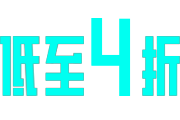翻译
分享
收藏
下载
登录查看完整案例

剩余84%未读,登录后即可浏览
废旧广告牌的逆袭 · 意大利 Santa Chiara 文化中心艺术设计
浏览28
发布时间:2018-10-02
设计亮点
将废旧广告牌创新性地重组为多彩的艺术装置,既体现了环保理念,又为场地注入了新的活力。
The installation and the signage of “Centro Servizi Culturali Santa Chiara”, property of Trento Municipality, have been commissioned by a tendering procedure. The project includes the exterior and interior parts of a medieval former convent, partially protected by “Sovrintendenza dei Beni architettonici” (cultural heritage committee). The “Centro Servizi”, thanks to the adjoining urban park, links different parts of the city and, together with the two theatres, attracts people of all ages and different cultures. Part of the complex, uninhabited for ages, is in a severe state of disrepair and except from a few graffiti of a modest artistic level, there are offensive and xenophobic writings on the walls, evidence not only of urban but also civil decay.
The new signage wants to replace the existing one, installed in the early 90ies, and complements it with several new functional elements for the visitors: wall claddings with shelves to display flyers in the porch and at the theatre's entrance, totems with information and direction signs and totems to display plays' billboards. The new elements have a brushed alluminium finish, which helps them to stand out from the warm terracotta colour of the background
With this artistic installation we wanted to focus on the great social responsibility played by the urban furniture work. Both designers and client believe in fact that the culture, represented by “Centro Servizi”, can fight the decay, adding a new aesthetic value to the place. This belief has inspired the concept idea of the re-design. The artistic installation and the signage re-use the old dibond billboards used for advertising the shows performed in these years. The panels are recovered, cut into stripes of 16 cm width and lastly put back together in an apparently random way. The re-use of dibond, reassembled to create new elements, tells us that society is enriched by diversity.
The recent past of this site is told through the hundreds of recovered billboards which are also seen as a way to advertise a current play, whose main characters are the inhabitants of the neighbourhood and the people using the “Centro”.
The installation speaks to the mind and the heart, it wants to touch people's feelings. While experiencing this space the panels' many colours are the first things human brain will notice. At night the led linear lighting underlines the structure of the porch's vaults. The re-use gives a second chance to the materials, and at the same time to the place and people. Graffiti writers' ethic teach us that if an artwork is already there it's not right to overwrite it. The installation's multicolour surfaces are not fitted for writings or vandalism, in this way they help to contrast urban decay. Re-use brings fantasy and creativity into play, it's educational and even therapeutic. In the future more installation will be built. Reusing the waste, namely billboards produced every day by the Centro, has been seen as a fun and useful way to recycle them. Over time, new elements will be added to the installation to achieve functional, aesthetic and emotional quality.
[IT]
L'allestimento artistico e la segnaletica del Centro Servizi Culturali S. Chiara, di proprietà del Comune di Trento, sono stati commissionati in seguito ad una gara di servizi. Il progetto comprende gli spazi esterni ed interni di un ex-convento medioevale, in parte sottoposto a tutela da parte della Sovrintendenza dei Beni architettonici. Il Centro Servizi, grazie al parco urbano adiacente, unisce parti diverse della città e attrae persone di tutte le età e culture che qui si ritrovano nei due teatri e nelle sale conferenze. Parte del complesso purtroppo è disabitata e in un grave stato di abbandono; a parte alcuni disegni di discreto livello artistico, opera di writers, vi sono scritte violente e xenofobe segno di degrado, prima che urbano, civile. La nuova segnaletica intende sostituirne una risalente agli anni '90 fornendo una molteplicità di nuovi elementi funzionali ai visitatori: il rivestimento murale del portico con i ripiani per esporre i volantini, quello dell'ingresso del teatro Auditorium, i totem per le locandine degli spettacoli, i totem di indicazione e quelli di direzione. Essendo l'edificio caratterizzato da una caldo color cotto, la nuova segnaletica ha una finitura metallica per risaltare sul contesto. Con l'allestimento artistico ci si è voluti interrogare sulla grande responsabilità sociale rivestita dall'opera di arredo urbano. Sia da parte dei progettisti che della committenza vi era infatti la convinzione che attraverso la cultura promossa dal CSCSC si potesse far fronte al degrado, aggiungendo nuovo valore estetico al luogo. Tale consapevolezza ha ispirato l'idea progettuale basata sul ri-design. L'allestimento artistico e la segnaletica ri-utilizzano gli ex cartelloni in dibond degli spettacoli andati in scena negli anni. I pannelli vengono tagliati in strisce di 16 cm e ricomposti in modo apparentemente casuale. Il dibond, ri-assemblato secondo una casualità apparente, dice che nella diversità la società si arricchisce. La storia recente di questo luogo è raccontata dalle centinaia di cartelloni recuperati che raccontano la narrazione attuale, della quale i personaggi principali sono gli abitanti del quartiere e coloro che frequentano il Centro. L'allestimento parla alla mente e al cuore, vuole suscitare emozioni. I colori dei pannelli vengono registrati per primi nell'esperienza di questo spazio. Di notte la luce a led lineare valorizza le volte del portico. Con il ri-uso si da una seconda possibilità ai materiali, e contemporaneamente al luogo e alle persone. Il writer etico, quando l'arte già c'è, non sovrascrive. Le superfici multicolori di questo allestimento mal si prestano ad apporre scritte o graffiti, scoraggiano il vandalismo. Il ri-uso contribuisce ad accrescere il decoro urbano perché mette in gioco la fantasia e la creatività, è educativo e perfino terapeutico. Per il futuro già si preparano altre installazioni: riutilizzando i materiali di scarto costantemente prodotti dal Centro, nel tempo saranno aggiunti nuovi elementi alle installazioni tesi ad ottenere funzionalità, estetica ed emozione.




没有更多了
相关推荐

搜索
搜索历史 清空
清空
暂无历史记录~




